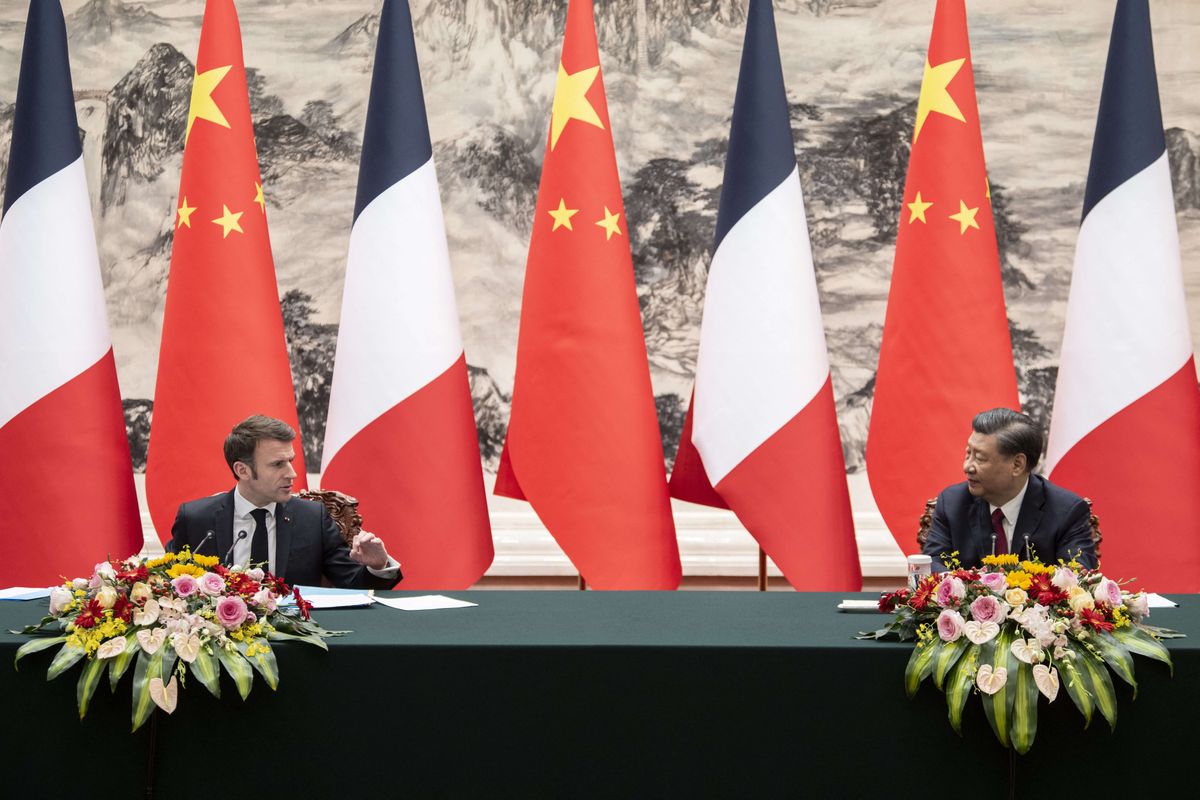Trending Now
We have updated our Privacy Policy and Terms of Use for Eurasia Group and its affiliates, including GZERO Media, to clarify the types of data we collect, how we collect it, how we use data and with whom we share data. By using our website you consent to our Terms and Conditions and Privacy Policy, including the transfer of your personal data to the United States from your country of residence, and our use of cookies described in our Cookie Policy.

As the US-China rivalry deepens, many countries – including close US allies – have made it clear that they don’t want to be forced to choose between the world’s two largest economies. They are engaging in an increasingly delicate dance to try and maintain constructive relations with both.
This tricky balancing act has been particularly hard for European heavyweights, like Germany and France, that share values and many interests with Washington, but also benefit greatly from economic integration with China.
While France’s Emmanuel Macron has taken a more combative approach, saying recently that it would be “a trap for Europe” to get embroiled in crises “that aren’t ours,” German Chancellor Olaf Scholz vigorously defended a recent trip to Beijing with a host of German business leaders, writing that “we don’t want to decouple from China.” (It’s no wonder that Berlin won't roll over on this issue considering that German exports to China have tripled since 2000.)
And what about countries in the Global South that are being wooed by both the US and China? Many countries across South America, Africa, and Central and South Asia benefit from loans and infrastructure investment under Beijing’s Belt and Road Initiative but also rely on the US for security guarantees and aid. Since Beijing expanded its Belt and Road Initiative to Latin America in 2017, the US has tried to warn that it is a Trojan Horse aimed at increasing China’s regional clout, but Argentina, Chile, Ecuador, and others have still tried to play both sides.
For now, this approach seems to be working, but if tensions over Taiwan ratchet up, it could get harder for US allies to continue fence-sitting.
